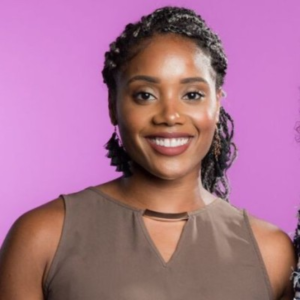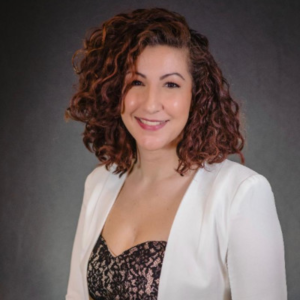Introduction to Change-Making in the Workplace Series
In April, Tufts Career Center’s Career Fellows Ismenia and Jesse moderated a panel on Change-Making in the Workplace. We will be breaking down that conversation into smaller blog posts, but if you are interested in watching the whole panel, you can do so here!
Here is the premise for the discussion: We continue to hear stories of underrepresentation and inequality in and around the workplace. How are companies responding to these longstanding injustices in their own workplaces, society and beyond? Learn about what it means to be a changemaker in the workplace and gain insight into what sort of influence you can have.
Panelists Sharing Thoughts, Insights, and Experiences
- Reema Elghossain, Vice President at 4A’s Foundation
- Phuong Ta ’16, Executive Search Consultant at Isaacson, Miller
- Gabrielle (Gabby) Thomas ’13, Diversity, Inclusion, & Belonging Program Manager at HubSpot
Affecting Change in the Workplace
Do you have any advice for what students doing internships or recent graduates new to the workforce can do to affect change? What types of strategies or approaches do you recommend?
 Gabby: I think honoring that history that may exist [within the organization] is super important and definitely to humble yourself. I will also say that absolutely bring your perspective and challenge what is already in place, and of course that will look different based on the culture of the space, and by challenge I mean just asking the question: “oh, why do we do it like this?” something simple as that because depending on like the attrition rate of that company there might be people who have been there since its inception and they just kind of know the way things are. So don’t be afraid to ask those questions to help prime them on “oh, hey I’ve never thought about why we put this on the left not on the right.” I think it also is being cognizant of that culture and I don’t want to take that away because that could be a privilege sometimes, being able to use your voice and not have to feel afraid of retaliation. Obviously you don’t want that, but that may be the reality for some and so picking and choosing when you do say or bring something up, I will respect that because I understand that there’s a privilege in being able to speak. I think the other thing that is important to understand too is that sometimes change does not mean you change the company’s mission statement change can be that you’ve helped to provide a much better experience for someone else. There’s change in the big and there’s change in the small and so being able to understand when you can leverage your voice in some of those instances is a super powerful thing to lean into.
Gabby: I think honoring that history that may exist [within the organization] is super important and definitely to humble yourself. I will also say that absolutely bring your perspective and challenge what is already in place, and of course that will look different based on the culture of the space, and by challenge I mean just asking the question: “oh, why do we do it like this?” something simple as that because depending on like the attrition rate of that company there might be people who have been there since its inception and they just kind of know the way things are. So don’t be afraid to ask those questions to help prime them on “oh, hey I’ve never thought about why we put this on the left not on the right.” I think it also is being cognizant of that culture and I don’t want to take that away because that could be a privilege sometimes, being able to use your voice and not have to feel afraid of retaliation. Obviously you don’t want that, but that may be the reality for some and so picking and choosing when you do say or bring something up, I will respect that because I understand that there’s a privilege in being able to speak. I think the other thing that is important to understand too is that sometimes change does not mean you change the company’s mission statement change can be that you’ve helped to provide a much better experience for someone else. There’s change in the big and there’s change in the small and so being able to understand when you can leverage your voice in some of those instances is a super powerful thing to lean into.
Definitely don’t compete with each other, don’t let them do that to you. Also, this work does not have to start once you actually enter the building on your first day. It can start when you are talking to folks trying to get an understanding of the company, during the interview process, that is really where it all can begin. Do not feel like you have to hold back because you’re trying to make yourself look better and not ruffle feathers, being able to ask those questions, like “what is your company’s DEI strategy?” “what being able to ask those questions upfront is super important. It can give you an insight into what they are doing, how they are thinking about it, but also help you decide whether you want to be there or not. You can you learn those things beforehand.
 Phuong: To me, personally, I think a bit of humility goes a long way in the sense of acknowledging the history and the context of the place that you are coming into. Because there might already be people who commit to doing this work and have been setting things up, so I think it is important to come in and learn and observe first what’s already out there and then be strategic with finding your people, building your community, and then putting out your ideas and figuring out what role you want to play in that organization. Always be strategic about your ideas and who you connect with, it is a key thing for me.
Phuong: To me, personally, I think a bit of humility goes a long way in the sense of acknowledging the history and the context of the place that you are coming into. Because there might already be people who commit to doing this work and have been setting things up, so I think it is important to come in and learn and observe first what’s already out there and then be strategic with finding your people, building your community, and then putting out your ideas and figuring out what role you want to play in that organization. Always be strategic about your ideas and who you connect with, it is a key thing for me.
 Reema: I would say if you want to talk about it in a DEI space, come in trying to identify what your role is that you play within an organization. Are you an ally? Are you going to be actively involved? Are you going to do some of the things that you both [Gabby and Phuong] mentioned? Like Gabby mentioned, just ask questions and questioning things is important. I think this is a new time where young people who are getting jobs, whether their entry level or higher, are coming in asking more about a company and more from a company, so do not feel uncomfortable doing that. When I speak with a lot of young people that are coming to the [advertising] industry there is a lot of imposter syndrome and that doesn’t always go away. I am still a recovering perfectionist as we speak, so I see so many people coming in competing with each other, especially young people of color, because it feels like we’re all coming from a place of lack and there’s limited opportunity when you might be the only person in the room that looks like you or the only person on your team. It is realizing there is not a lack, but there is an abundance, there is enough for everyone. You just have to believe that. We need to continue to push industries to make space for more people and to not have them compete with each other. Do not compete with each other, you will need support. One of you will get promoted faster and then the other person will refer a person and that community is so important. So do not come in freaking out, it figures itself out. Just figure out what your role is and what you want to play in in the world because and sometimes it is different hats at different times.
Reema: I would say if you want to talk about it in a DEI space, come in trying to identify what your role is that you play within an organization. Are you an ally? Are you going to be actively involved? Are you going to do some of the things that you both [Gabby and Phuong] mentioned? Like Gabby mentioned, just ask questions and questioning things is important. I think this is a new time where young people who are getting jobs, whether their entry level or higher, are coming in asking more about a company and more from a company, so do not feel uncomfortable doing that. When I speak with a lot of young people that are coming to the [advertising] industry there is a lot of imposter syndrome and that doesn’t always go away. I am still a recovering perfectionist as we speak, so I see so many people coming in competing with each other, especially young people of color, because it feels like we’re all coming from a place of lack and there’s limited opportunity when you might be the only person in the room that looks like you or the only person on your team. It is realizing there is not a lack, but there is an abundance, there is enough for everyone. You just have to believe that. We need to continue to push industries to make space for more people and to not have them compete with each other. Do not compete with each other, you will need support. One of you will get promoted faster and then the other person will refer a person and that community is so important. So do not come in freaking out, it figures itself out. Just figure out what your role is and what you want to play in in the world because and sometimes it is different hats at different times.

